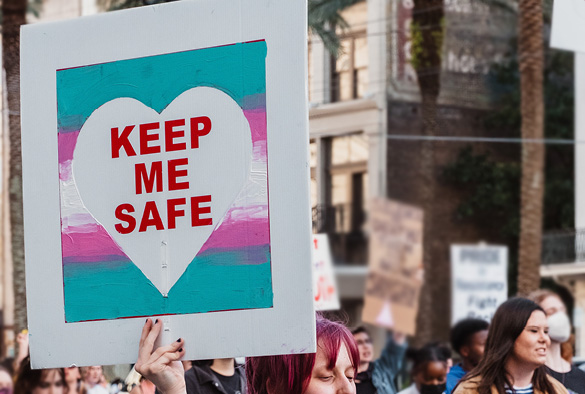Research examines LGBTQ+ domestic abuse victim-survivors’ experiences of online court hearings

Domestic abuse in lesbian, gay, bisexual, transgender and queer communities is a serious issue. Approximately 25% of LGBTQ+ people suffer through violent or threatening relationships with partners or ex-partners, which is around the same rate as domestic abuse against heterosexual women.
It has been found that LGBTQ+ communities are often met with ineffective and victimising legal responses. LGBTQ+ individuals have been found to experience distinctive barriers to seeking help due to fear of discrimination or bias.
When they do seek help from the law for domestic and family violence, these barriers and fears of discrimination are often realised for LGBTQ+ individuals. However, very little is known about the courtroom experiences of LGBTQ+ victim-survivors and even less about how LGBTQ+ victim-survivors experienced ‘remote justice’ during the pandemic.
University of Liverpool researcher Dr Ellen Reeves, in collaboration with researchers in Australia, explored LGBTQ+ domestic and family violence victim-survivors’ experiences of remote court hearings during the COVID-19 pandemic in Australia, with specific focus on the gendered dimensions of safety, independence, and visibility.
Studying diverse groups is important because social identities shape the rights of people in communities and their access to justice systems. The study found that perceptions of the effectiveness of remote court hearings were largely split along gendered lines.
Women-identifying participants tended to speak about the feelings of safety and protection that the remote hearings afforded them and the alleviation of economic barriers that are commonly associated with in-person court hearings. Economic barriers related to arranging childcare and taking time off work.
In contrast, men-identifying participants framed remote hearings as disadvantageous because it made them feel even more invisible as men victim-survivors of domestic and family violence.
The lead author, Dr Ellen Reeves, Lecturer, Department of Sociology, Social Policy, and Criminology shared:
“This study serves as a reminder that justice holds different meanings to different people, and if remote hearings remain a key mechanism to improve court experiences for victim-survivors, then a one-size-fits-all approach should be avoided. The study also reinforces the importance of gender roles and gendered experiences in research on LGBTQ+ domestic and family violence.”
Dr Ellen Reeves is currently writing a book on LGBTQ+ victim-survivors’ access to and experiences of civil law responses to domestic and family violence. It is due for publication with Routledge in 2025. This work will look more holistically at the ways in which legal responses to domestic and family violence have failed to meaningfully recognise LGBTQ+ experiences.